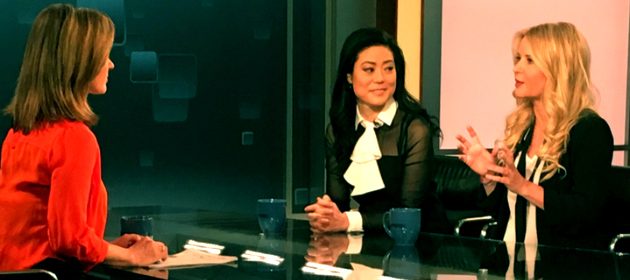It’s a fascinating time in the publicity business these days. I have thought leaders coming to me on a regular basis wanting the more traditional media. Yes, they’ve been using social media, yes, their networks have grown considerably, but there is something about national TV that has them panting. They really want it, and I can understand why. It brings enormous credibility, and because securing top tier media is very challenging, it really says something about you when you appear there. The exposure targets vast numbers of people they wouldn’t have been able to reach otherwise. I won’t sugar coat it for you though. To land top tier national television means you have to have the goods, and you have to deliver it in a unique, compelling, and fascinating way. How’s that for a challenge?
One of the challenges I see many face is that they have a message they want to get out in the world, but often the message alone is too soft. A message that we all must be kind to one another in a world that has gone fairly crazy, is a beautiful idea, but it doesn’t have legs. No producer is going to book something that is so soft, and I don’t care how many affirmations you write out, and what kind of mindset you develop. Don’t get me wrong. Affirmations are good. Having a positive mindset is essential, but confidence without competence just doesn’t work. You must be able to deliver the goods…and if you have a large ego, you must be able to take a look at yourself and see if there isn’t something more you need to learn. On the other hand, if you fall on the other side of the spectrum and wonder if you have anything to actually say, well, you need to do some work there too. Most people fall somewhere between the two, but there are always outliers.
Check list:
- Media is looking for people with strong, well spoken opinions based on facts. Not alternative facts.
- They look at a potential guest’s education level.
- Having experience is important.
- Not having a checkered past is best, because any past mistakes can affect your chances of securing coverage. After all, in this day and age nothing goes away.
- Media is interested in knowing you have a platform, meaning you have networks and social networks. If they book you, they want you tell your networks.
- They also need to see and hear that you can deliver under stressful circumstances.
- Be sure you have video of yourself doing a television interview on your website. If not, create a mock interview. Then get an interview on one of your local TV stations and post that.
- If no TV yet, an online interview is the next best step. It’s better than you speaking to a group, because in an interview they can see you in that context.
- On the other hand, if speaking in front of a group is all you have for now, it’s certainly better than nothing.
- Producers want to see you in action.
- Produce B-Roll.
- Consider live props Television is visual. See if there are props you can use that demonstrate your points.
- Get media trained. I have stories I can share with you and believe me, you don’t want to be an example of someone who didn’t get training.
Once you get the top-tier interview, congratulate yourself!
Then, be ready in case you get bumped. It happens. Also, they will send a car to your hotel to pick you up, but you’re on your way for a ride back.
Also, if you need anything from the producer, ask before the interview. Afterwards, they are onto the next guest and your time is past.
Top-tier interviews are the best at showing you as the expert, but they’re tough to get. However, it’s not impossible. People are doing it every day. Remember to watch the show you want to be on, make sure your ideas and content is unique with a fresh take on things, and then go for it.
To your success!
Joanne

